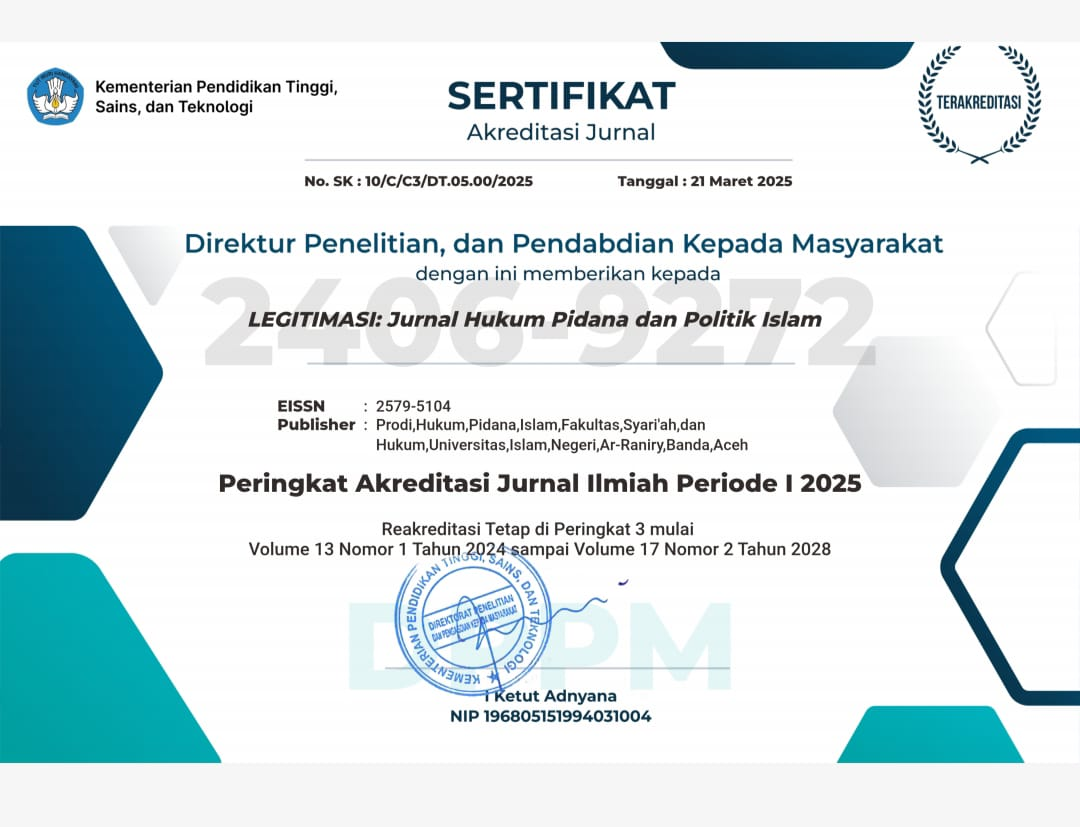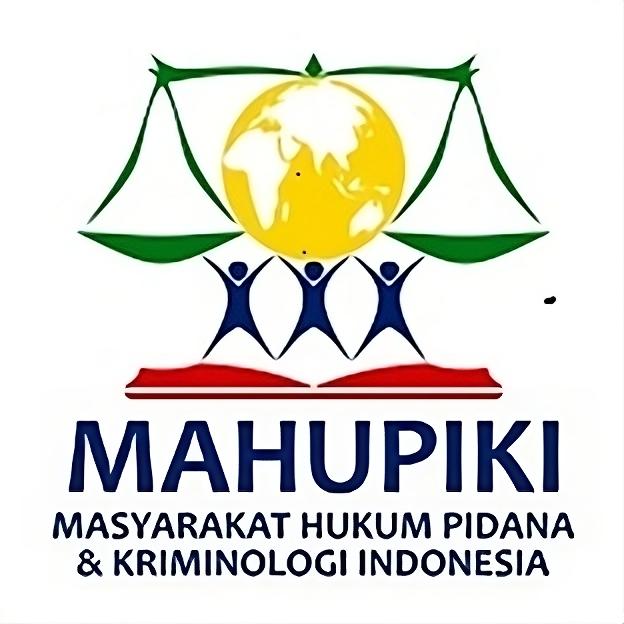Analisis Pemikiran Ibnu Hazm Tentang Kesaksian Wanita dalam Pidana Zina
DOI:
https://doi.org/10.22373/legitimasi.v1i2.1426Keywords:
Saksi, Wanita, Pidana ZinaAbstract
Testimony is valid evidence to obtain legal certainty. Of proof in criminal adultery with a request for information made four male witnesses as represented in the texts of the Koran. Ibnu Hazm practice texts generality arba'ati syuhada include men and women and reject hadis munqathi' basis for justification of testimony limited to the male gender only. This argument is the basis for Ibn Hazm allowing women to testify in criminal adultery while guided by the principle of equality of men and women. In addition, Ibnu Hazm also rejected the psychological condition of women as a reason for refusing the testimony of women in certain fields. This condition can be anticipated by the number of witnesses more women than men because the Qur'an clearly define terms that are fair witness is owned by men and women
References
A1-Ghazali, Muhammad. Studi Kritis Atas Hadils Nabi. (terj. Muhammad Al-Baqir),
Bandung: Mizan, 1998.
Ahmad, Muhammad „Athâ‟ al-Sayyid Sid. al-Tasyrî' al-Jinâ‟îy al-Islâmîy. Malaysia:
Pustaka Negara Malaysia, 1995.
al-„Aynî, „Abd al-Fatâh Muhammad Abû. al-Qadhâ‟ wa al-Itsbât fî al-Islâmîy. Kairo: Dâr
al-Kutub, 1983.
al-„Asqalânî, Ibnu Hajar. Tahdzîb al-Tahdzîb. Juz. II, t.p.: Dâr al-Fikr, 1984.
Al-Bukhârî. Shahîh Bukhârî. Riyâdh: Dâr al-Salâm, t. th.
al-Dardîr, Ahmad. al-Syarh al-Shaghîr. Juz V, Bayrût: Maktab Muhammad „Alî Syubaihi
wa al-Dîn, t.th.
al-Jawziyyah, Ibnu Qayyim. I‟lâm al-Muwaqqi‟în. Juz I, Bayrût: Dâr al-Fikr, t.th.
al-Jazirî, „Abd al-Rahmân. al-Fiqh ‟Alâ Madzâhib al-Arba‟ah. Juz V, Bayrût: Dâr al-Fikr,
t.th.
Al-Mâwardî. al-Hâwî al-Kabîr. Juz XVII, Bayrût: Dâr al-Kutub al-Ilmiyah, t.th.
al-Râzî, „Abd al-Rahmân. aI-Jarh Wa al-Ta'dîl. Jilid III, t.p.: t.tp, 1952.
al-Sâyis, Muhammad „Alî. Tafsîr Ayât al-Ahkâm. Jilid III, t.p.: t.tp., t.th.
al-Syâfi‟î, „Abd Allâh Muhammad Ibn Idrîs. al-Umm. Juz VII, Bayrût: Dâr al-Fikr, t.th.
Al-Syaukani. Irsyad al-Fuhul. Surabaya: Serikat Maktabah Ahmad bin Sa‟id bin Nabhan,
t.th.
Ash-Shiddieqy, T. Muhammad Hasbi. Hukum-Hukum Fiqh Islam. Semarang: Pustaka
Rizki Putra, 1997.
„Awdah, „Abd al-Qâdir. al-Tasyrî‟ al-Jinâ‟îy al-Islâmîy, Jilid II, Bayrût: Muassasah alRisâlah, 1982.
Beyk, Khudhari. Tarikh al-Tasyri`al-Islami. (terj. Muhammad Zuhri), Indonesia: Darul
lhya`, t.th.
Ibnu Hazm. al-Ihkâm fî Ushûl al-Ahkâm. Juz II, Kairo: Maktabah „Atif al-Azhâr, 1978.
Mukhsin Nyak Umar: Analisis Pemikiran Ibnu Hazm...
------------. al-Muhalla. Tahqîq Muhammad Munîr al-Dimasqi, Juz IX, (Mesir: Idârât alThaba‟a al-Muniriyah, 1351 H.
Ibnu Qudâmah. al-Mughnî al-Syarh al-Kabîr. Juz XII, (Makkah: Maktabah al-Tijârah, t.th.
Ibnu Rusyd. Bidayat al-Mujtahid wa Nihayah al-Muqtashid. Juz II, Semarang: Maktabah
Usaha Keluarga, t.th.
Muslim. Shahih Muslim. Jilid II, (terj. Adib Bisri Musthofa), Semarng: As-Syifa‟, 1993.
Zahrah, Abû. Ushûl Fiqh. Kairo: Dâr al-Fikr al-„Arabî, t.th.
Downloads
Published
Issue
Section
License
Authors who publish in Legitimasi: Jurnal Hukum Pidana dan Politik Hukum agree to the following terms:
- Authors retain copyright and grant the journal right of first publication with the work simultaneously licensed Attribution-ShareAlike 4.0 International (CC BY-SA 4.0) that allows others to share the work with an acknowledgment of the work's authorship and initial publication in this journal.
- Authors are able to enter into separate, additional contractual arrangements for the non-exclusive distribution of the journal's published version of the work (e.g., post it to an institutional repository or publish it in a book), with an acknowledgment of its initial publication in this journal.
- Authors are permitted and encouraged to post their work online (e.g., in institutional repositories or on their website) prior to and during the submission process, as it can lead to productive exchanges, as well as earlier and greater citation of published work. (See The Effect of Open Acces)











